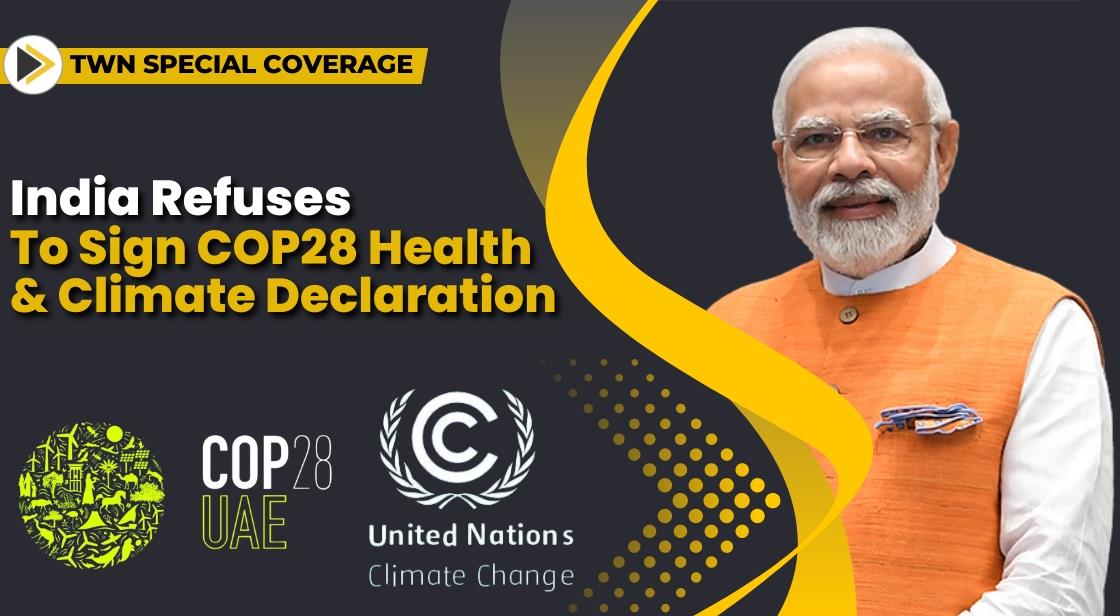India Refuses to Sign COP28 Health and Climate Declaration

News Synopsis
India decided not to sign the COP28 Declaration on Climate and Health during the Health Day Programme at the 28th United Nations Climate Change Conference.
While India extended support to the ministerial meeting organised by the COP28 Presidency, the World Health Organization and the UAE's Ministry of Health and Prevention, the Indian Health Ministry delegation did not participate in the event.
The decision has raised concerns about India's commitment to addressing the critical interconnection between climate change and global health.
An impossible target for India's healthcare infrastructure:
One of the main reasons for India's decision not to sign the COP28 declaration is the practicality of curbing the use of greenhouse gas for cooling in the country's healthcare infrastructure.
What is mentioned in the announcement may not be achievable in the short term due to challenges within India's healthcare system.
India has highlighted its critical health care challenges, including those exacerbated by climate change, of how greenhouse gas reductions for cooling in the health sector can hamper the ability of medical services to meet growing demands, especially in remote and underserved areas.
India's Commitment to Resilient Health:
Despite not signing the COP28 declaration, India has emphasized resilient health in its G20 declaration.
India has prioritised building a resilient healthcare system, improving access to medical remedies, and facilitating sharing of digital goods between countries.
India's focus on resilient health highlights its commitment to addressing the wide-ranging impacts of climate change on health and finding sustainable solutions.
The COP28 declaration underscores the importance of taking a holistic approach to understanding and mitigating the diverse health challenges posed by a changing climate.
It recognises the need to fight inequalities within and between countries and to pursue policies in line with the Sustainable Development Goals, particularly SDG 3, which aim to ensure good health and well-being for all.
This comprehensive approach seeks to reduce poverty and hunger, improve health and livelihoods, strengthen social protection systems, and ensure access to clean energy, safe drinking water, sanitation and hygiene.
Promoting Sustainable Practices within the Health Sector:
Acknowledging the carbon footprint of health systems, the COP28 declaration encourages the adoption of sustainable practices within the sector.
This includes assessing greenhouse gas emissions, developing action plans, setting decarbonization targets, and implementing procurement standards for national health systems and supply chains.
The Declaration aims to contribute to broader climate goals by promoting sustainable practices, and at the same time address the specific challenges posed by climate change to global health.
Concerns about India's absence from the list of signatories:
Jess Beagley, policy chief of the Global Climate and Health Coalition Jess Beagley Policy Lead for the Global Climate and Health Alliance expressed concern over India's absence from the list of countries supporting the COP28 health declaration.
Being one of the leading global emitters and home to a significant portion of the world's population, India's decision not to support the declaration calls into question its commitment to considering the health impacts of climate change.
Beagley emphasized the impacts of climate change on human health and the importance of recognizing opportunities for well-being through climate action.
You May Like









